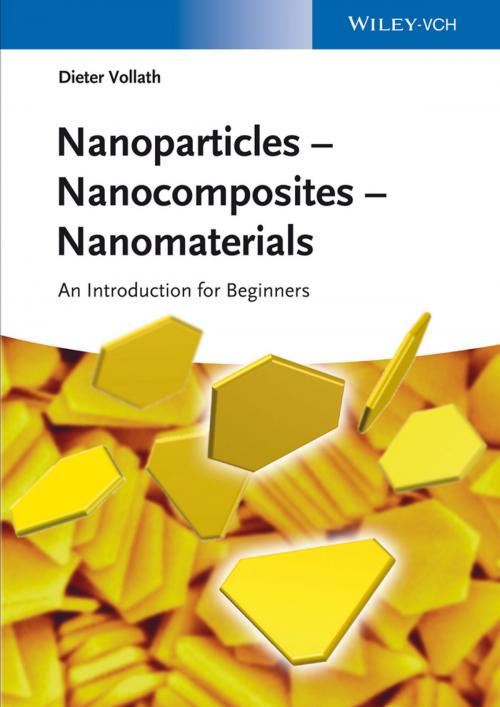Nanoparticles - Nanocomposites – Nanomaterials
An Introduction for Beginners
Nonfiction, Science & Nature, Technology, Nanotechnology| Author: | Dieter Vollath | ISBN: | 9783527670727 |
| Publisher: | Wiley | Publication: | November 14, 2013 |
| Imprint: | Wiley-VCH | Language: | English |
| Author: | Dieter Vollath |
| ISBN: | 9783527670727 |
| Publisher: | Wiley |
| Publication: | November 14, 2013 |
| Imprint: | Wiley-VCH |
| Language: | English |
Meeting the demand for a readily understandable introduction to nanomaterials and nanotechnology, this textbook specifically addresses the needs of students - and engineers - who need to get the gist of nanoscale phenomena in materials without having to delve too deeply into the physical and chemical details.
The book begins with an overview of the consequences of small particle size, such as the growing importance of surface effects, and covers successful, field-tested synthesis techniques of nanomaterials. The largest part of the book is devoted to the particular magnetic, optical, electrical and mechanical properties of materials at the nanoscale, leading on to emerging and already commercialized applications, such as nanofluids in magnetic resonance imaging, high-performance nanocomposites and carbon nanotube-based electronics.
Based on the author's experience in teaching nanomaterials courses and adapted, in style and level, for students with only limited background knowledge, the textbook includes further reading, as well as information boxes that can be skipped upon first reading.
Meeting the demand for a readily understandable introduction to nanomaterials and nanotechnology, this textbook specifically addresses the needs of students - and engineers - who need to get the gist of nanoscale phenomena in materials without having to delve too deeply into the physical and chemical details.
The book begins with an overview of the consequences of small particle size, such as the growing importance of surface effects, and covers successful, field-tested synthesis techniques of nanomaterials. The largest part of the book is devoted to the particular magnetic, optical, electrical and mechanical properties of materials at the nanoscale, leading on to emerging and already commercialized applications, such as nanofluids in magnetic resonance imaging, high-performance nanocomposites and carbon nanotube-based electronics.
Based on the author's experience in teaching nanomaterials courses and adapted, in style and level, for students with only limited background knowledge, the textbook includes further reading, as well as information boxes that can be skipped upon first reading.















